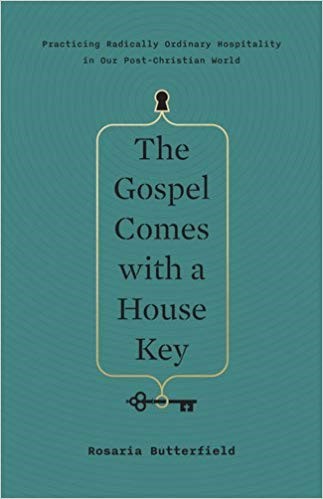
by Chris Doyle | Feb 22, 2019
Greetings!
For this week’s DHD I decided to share six of my favorite Bible verses with commentary from the Life Application Study Bible. I hope these passages encourage you!
1. Prov. 17:17 – “A friend loves at all times, and a brother
is born for adversity.”
“What kind of a friend are you? There is a vast difference
between knowing someone well and being a true friend. The greatest evidence of
true friendship is loyalty—being available to help in times of distress or
personal struggle. Too many people are fair-weather friends. They stick around
when the friendship helps them and leave when they’re not getting anything out
of the relationship. Think of your friends and assess your loyalty to them. Be
the kind of true friend the Bible encourages.”
2. James 1:19 – “…But everyone must be quick to hear, slow
to speak and slow to anger;”
“When we talk too much and listen too little, we communicate
to others that we think our ideas are much more important than theirs. James
wisely advises us to reverse this process. Put a mental stopwatch on your
conversations, and keep track of how much you talk and how much you listen. When
people talk with you, do they feel that their viewpoints and ideas have value?”
3. Prov. 3:5-6 – “Trust in the Lord with all your heart, and
do not lean on your own understanding. In all your ways acknowledge Him, and He
will make your paths straight.”
“When we have an important decision to make, we sometimes feel
that we can’t trust anyone—not even God. But God knows what is best for us. He
is a better judge of what we want than we are! We must trust Him completely in
every choice we make. We should not omit careful thinking or belittle our
God-given ability to reason, but we should not trust our own ideas to the
exclusion of all others. We must not be wise in our own eyes, but be willing to
listen to and be corrected by God’s Word and wise counselors. Bring your
decisions to God in prayer; use the Bible as your guide; and then follow God’s
leading. He will direct your paths by both guiding and protecting you.”
4. Matt. 6:33 – “But seek first His kingdom and His
righteousness, and all these things will be added to you.”
“To make the Kingdom of God your primary concern means to
put God first in your life, to fill your thoughts with His desires, to take His
character for your pattern, and to serve and obey Him in everything. What is
really important to you? People, objects, goals and other desires all compete
for priority. Any of these can quickly bump God out of first place if you don’t
actively choose to give Him first place in every area of your life.”
5. Psalm 34:8 – “Taste and see that the Lord is good. How
blessed in the man who takes refuge in Him!”
“Taste and see” does not mean, “Check out God’s credentials.”
Instead, it is a warm invitation, “Try this; I know you’ll like it.” When we
take that first step of obedience in following God, we cannot help discovering
that He is good and kind. When we begin the Christian life, our knowledge of
God is partial and incomplete. As we trust Him daily, we experience how good He
is.”
6. Rom. 8:28 – “And we know that God causes all things to
work together for good to those who love God, to those who are called according
to His purpose.”
God works in “everything”—not just isolated incidents—for our
good. This does not mean that all that happens to us is good. Evil is prevalent
in our fallen world, but God is able to turn every circumstance around for our
long-range good. Note that God is not working to make us happy but to fulfill
His purpose. Note also that this promise is not for everybody. It can be claimed
only by those who love God and are called by Him, that is, those whom the Holy
Spirit convinces to receive Christ. Such people have a new perspective, a new
mindset. They trust God, not in worldly treasures; their security is in heaven,
not on earth. Their faith in God does not waver in pain and persecution because
they know God is with them.

by Caleb Moore | Feb 19, 2019
Often when we pray, we pray for relief. We pray for
financial relief, emotional relief and physical relief. Most of us have never
prayed for pain, at least not directly, but pain is often a result of our
prayer life.
Any time you want to grow spiritually you can be sure that
pain will play a part. If I were to ask you in what seasons of life do you grow
the most spiritually, many of you would talk about a difficult circumstance you
went through.
Maybe it was the sickness of a loved one where you had to
learn to trust God. Maybe it was loosing a job, where again, you had to learn
to trust God for provision. In all of my biggest leaps of spiritual growth,
pain played a big part.
The question isn’t, “Will there be pain?” The question is,
which kind of pain will you choose? Sometimes I grow because I suffer the
consequence of my own actions. This is self-inflected pain that God uses to
grow me. Other times, the pain is found when I am following God’s commands, and
the situation gets really difficult.
In the Old Testament, Elijah experiences good growth through
pain. He stands before Ahab and proclaims that it will not rain until he
decides that it is time. Elijah got to be the mouth of God before an evil and
powerful man. He got the chance to really make a difference and to stand on the
greatest stage where he spoke boldly for God.
Then God leads him to a stream where ravens bring him his
food, and he drinks from the water. However, over time the stream begins to go
dry. Why? Because that is exactly what Elijah prayed for. Pretty soon Elijah
gets thirsty, and the water is all gone. His pain was a direct result of his
prayer life.
I would argue that God was using that time to prepare Elijah
for what comes next. It’s hard to see when you are in the midst of a struggle,
but sometimes that pain is a blessing, especially if it is the result of
obedience.
Too many times we pray for God to ease the pain of our own
mistakes. If pain is inevitable, then it would be best to experience the growth
that comes from obedience.
So this is the choice we as Christians have to make. What
kind of pain do you want? Do you want the pain of consequences or the pain of
obeying your calling? When we follow the example of Elijah, or even Jesus
himself who chose the pain of the cross, God uses that obedience in mighty
ways.
This week, I ask that you pray a dangerous prayer. Pray for
pain, but pray for the pain that comes from trusting God. If we are to mature,
we must trust, and trust is always scary. But I would rather suffer from
obedience than have to suffer one more time for the same old mistakes of my
past.

by Caleb Gordon | Feb 14, 2019
I personally think that we are on the edge of something really big
in the church world.
For the past 70 to 80 years, we’ve done our dead-level best to
make Christianity look polished and slick. When you ask the average church-goer how
life is, the standard response is, “NO
problems here, we’re good.”
We have preachers who “look” like they have everything figured
out. Their families are perfect; no struggles or problems, so,
therefore, it’s tough to approach leaders and talk about our everyday problems.
So, instead of following the mandate of James 5:16, we build a wall of
isolation in the attempts to be perceived as having it all figured
out.
This is why we are seeing 50 percent of Christian marriage
falling apart because we don’t have real community. We
don’t have a safe place to sit down and talk through our struggles and
problems. We don’t have a place to get real answers.
Let’s be honest. When someone asks ‘How are you doing?’ If
someone actually starts to unpack the messy, we get a little freaked out, and
we want our cell phone to ring, so we can avoid the actual conversation. Because
we don’t actually want to get involved, we just want to have the perception of
being involved.
My friends, there would be so much freedom if we as Christians just
followed this one verse.
“Therefore,
confess your sins to one another and pray for one another, that you may be
healed. The prayer of a righteous person has great power as it is working” (James 5:16).
I need you to see what just got unpacked there. James did not
say confess and gossip to one another. He said confess and PRAY FOR one
another!
If Christians would just take the time to actually care about
one another, we just might see a body of people who could shake the planet for
the mission of the Gospel. If we had a group of people who understood we were
all flawed, but in Christ we were by no
means failures, it just might generate a revival in the church.
What we need are people in the church who want to see others
succeed in Christ. We don’t need to pile drive one another into the
pavement. We need to encourage each other to find Christ as our perfect
Savior, who has already rescued and redeemed us from the horridness of sin and
self, and simply rest in His finished work
that he did on the cross on our behalf.
I think we are so close to seeing this in the American church
world. And I think that’s going to happen because of persecution. If
you look at the church in Middle Eastern and European countries, this is what’s
happening, and as a result, the church is growing. We are seeing authentic
communities of Gospel-centered faith that are activated for the cause and
mission of Jesus Christ. These people are not star struck by some preacher. They
are not building a castle. They are focused on seeing the Kingdom of God
built.
“The Spirit
himself bears witness with our spirit that we are children of God, and if
children, then heirs—heirs of God and fellow heirs with Christ, provided we
suffer with him in order that we may also be glorified with him” (Rom. 8:16-17).
When people suffer for the cause of the Gospel, their mindset
changes. It’s no longer how they can advance their agenda, get ahead, or tear
one another down. Rather, they look for ways to advance the Kingdom, win
souls for Christ and sacrifice for each other.
I think that if a bulk of people in the American church would
adopt this mindset we would see a complete transformation and a spirit-filled
revival.

by Karen Kinnaird | Feb 12, 2019
Eager
to immerse myself into a book that has caused quite a buzz in recent months, I
settled into my recliner with a blanket and cup of tea, ready to be entertained
and inspired. Shortly after, glancing down at only page number 43 I had to
close the book. I thought to myself, “I can’t
do this. I can’t live like this.”
Published
by Crossway in 2018, The Gospel Comes
with a House Key – Practicing Radically Ordinary Hospitality in Our
Post-Christian World isn’t just about hosting the monthly Sunday School
fellowship. Butterfield writes about “radically ordinary hospitality” where people
“see their homes not as theirs at all but as God’s gift to use for the
furtherance of His kingdom.” Resembling homes of first century Christians, this
type of hospitality views “houses as hospitals and incubators” and where one
“risks getting close enough to people to get
hurt.”
The
type of daily, radical hospitality that Rosaria Butterfield writes about is completely
out of my comfort zone. Sensing conviction, my conscience was soon relieved as
I rationalized two dates scheduled on my calendar to open my home—one to host
an overnight retreat for the young women in my home church and another to host
church planting wives in my area. This, however, is not exactly what Rosaria Butterfield
is referring to.
This
manner of hospitality doesn’t worry about matching dishes, dirty windows or
weeds in the garden. It’s the kind that is OK with not knowing how many will
show up for a meal. It’s the kind that doesn’t care if someone else’s hairy dog
sleeps on the couch. It’s the kind that gets up at 4:30 a.m. every day to start
cooking or the kind that sacrifices luxuries to accommodate a higher grocery
bill—every week. The meal may be beans and rice, or soup and fresh bread, but
the focus is on relationships with people who may be different and hold
different worldviews. It focuses on safe conversations with open Bibles, which
build trust between skeptical unbelievers and authentic Christians.
Butterfield is a former tenured professor of English and women’s studies
at Syracuse University. As a former atheist, LGBT advocate and feminist, she
was dramatically converted by means of hospitality herself in 1999. Rosaria is
married to Kent, a Reformed Presbyterian pastor in North Carolina, and is a
homeschool mother, author and speaker. She is an advocate for adoption, foster
care and SAFE Families for Children. Butterfield is one of the keynote speakers
at the BGCO Women’s Retreat at Falls Creek in April.
The book is a
blend of autobiography and theology. Butterfield writes in the first person and
invites readers into her life as she shares her devotional life, her home life with
her pastor husband and adopted children, and unique unconditional love for her
neighbors. She writes about her difficult childhood, complicated relationship
with her mother and her time in the LGBQ community. She writes skillfully about
incidences requiring church discipline. The story of the reclusive next door
neighbor Hank who gets busted for the meth lab in his basement is compassionately
woven throughout the book.
I highly
recommend The Gospel Comes with a House
Key for both men and women, married and single. Warning: it will step
on your toes. Butterfield doesn’t
pull any punches. She is unrelenting in her stance on sin and repentance. The book will challenge
your evangelistic efforts and cause you to examine your relationships with
different and difficult people in your neighborhood and life.
Perhaps
it is time to recognize the idols of comfort, control, safety and security that
have subtly taken precedence over the Lord. Perhaps it is time to confess that
we’ve made our homes private sanctuaries and stop using excuses of being incapable
or too busy.
In
the end, I was entertained and inspired, but I was also convicted, challenged
and called to action. Reality is, I really can’t do it. This is the fruit of a
Spirit-filled life. My life won’t look just like Rosaria’s, but with God’s help
I can do better—a lot better.

by Angela Sanders | Feb 6, 2019
I have to see so-and-so today, and I dread it.
Not because I’m afraid of them. They aren’t in a position to hurt me anymore.
Not because I’m jealous of them. I don’t want anything they
have.
I dread seeing them because our interaction always reveals ugliness
in me. I don’t ignore them. I don’t say
vindictive things. I don’t use body language to make them feel uncomfortable. In
fact, I don’t think they even know I still struggle, but I do.
Over time, with God’s help, I have learned how to love them
in practical ways for His sake, how to speak and demonstrate grace with
sincerity, how to measure out mercy when they exhibit behaviors that bring up
dark memories for me, and how to forgive completely, truly believing and acting
as if they don’t owe me anything else for what happened.
The thing is, I don’t care about them, not like I should. I see the work God is doing in their life, but
I don’t rejoice with them like I do with others. When they suffer, I don’t hurt
for them like I’d hurt for someone else.
When they fail, I struggle not to feel gratified.
Honestly? If you told me I’d never see them again, I
wouldn’t be too sad. Curious, yes.
Regretful over what could have been, of course, but not really sad.
See? Ugly. Really
ugly. Strong evidence that I’ve got a lot of growing to do, and I don’t like to
be reminded.
I may have beaten my body and made it my slave to a certain
degree (1 Cor. 9:27), doing the right things by this person so as not to
discredit the Gospel outwardly, but I have not allowed God to transform my mind
where they are concerned (Rom. 12:2).
If I had, I would feel compassion toward this spiritual
sibling who struggles just like I do to keep moving forward in their faith. I
would care less about the effects of their behavior on me and more about their
behavior’s effect on Jesus’ reputation in the world. I wouldn’t keep
congratulating myself for doing the bare minimum in this one relationship when
Jesus gave His utmost for us all.
Hard truth? My obedience in this particular relationship has
been superficial at best so far. It’s time to get serious about letting God demonstrate
what He can do in and through a thoroughly surrendered heart.
It’s time to turn my focus away from what’s temporary—myself,
this person, and our mutual experience included—and fix it on the eternal—God,
the Gospel, and His eternal purpose (2 Cor. 4:18).
It’s time to recognize anew the Holy Spirit’s authority in
my life and give Him jurisdiction not only over my behavior, but over my thoughts
as well, allowing Him to take captive any and all that don’t please Him until I
only see what He sees when looking upon this imperfect sibling of mine, the very
same blood of Jesus that covers my own sin, no less offensive than theirs.
Okay, Lord. I’m
ready. Teach me to love deeply, this time from the heart (1 Pet. 1:22).

by Ryan Smith | Jan 31, 2019
If you were to
guess, why would you say people stay at your church? Come up with a short list.
Now imagine a
church moved in across the street that did each of those things a bit better—even
bigger. Would people stay at your church?
In a flashbang
culture that leads by sound bites and microwave convenience, it is easy for us
to focus on improvements of immediacy in our churches. In the words of Zack
Eswine, we want “large things famously fast.”
You want a young
pastor? Our new guy is 12.
You want louder
music? Our amps go to 11.
You want more
friends? We’ve got Ross and Monica.
You want a more
fun children’s ministry? We just annexed Disneyland.
Let me be clear:
these things are not bad in and of themselves (except for the 12-year-old
pastor. That’s ill-advised). I am all for quality music, aesthetic facilities
and engaging children’s ministries. We certainly should do all we can to make
our churches welcoming, comfortable and communicative for the Gospel without
unnecessary distraction.
But someone’s
pastor will be 11.
Someone else’s
amps will go to 12.
Someone else will
have more friends.
Someone else’s
children’s ministry will annex Universal Studios and be led by the Avengers.
Sadly, what happens
in many of our churches, in attempting to keep our seats filled, we become so
focused on the means that we relegate the message to the background. Or worse,
we make the message a pragmatic means to our ultimate numerical goal.
Pastor, leader,
church member, if I may offer a word of encouragement: Trust the Gospel. Trust
the Word. Trust the slow and steady process of discipleship.
Evaluation and
assessment are always good in the church, and we never want anything to be
offensive except the Gospel. But as we survey our facilities and hold our
meetings of evaluation, start first at biblical faithfulness and Gospel
understanding. Never assume the Gospel in your church. Never assume because you
have Bible verses in your sermons that you are teaching the Bible to your
congregation.
When your church
is focused on the Gospel through God’s Word, members won’t leave because they
found bigger/better. There is no bigger/better. The great thing about the Word
of God is you can never make Truth more true. The power of the Gospel isn’t
measured in wattage and decibels. In preaching Jesus, you know there’s not a
bigger and brighter Savior moving in across the street.
Sadly, yes, people
in your church may leave. They may even leave for bigger/brighter things. That’s
not necessarily in your control. What you can control is ensuring people won’t leave
your church for lack of Gospel faithfulness and thorough teaching of God’s
Word.
A wise man once
told me, “What you win them with is what you win them to.” If we reach our community
with gimmicks, production and moral self-help platitudes, we may get more
people in our doors, but they will leave once we have a rough week, a less bold
idea or someone else moves in with resources to do it bigger, bolder and
brighter.
However, if the
center of your church is the clear communication of the Gospel through God’s
authoritative, sufficient, inerrant Word, then no one can beat that. No one can
outshine the glory of God if your church is truly upholding Christ crucified,
resurrected and seated on the throne.
In fact, when
that is the focus of your church, you can celebrate when the new guy moves in
across the street with a bigger platform or louder band who is also truly
sharing that same faithful Gospel message through exegesis of the same Word.
Your goal is the same.
You can deliver
hard truths and discuss difficult topics because you’re not concerned about
seating capacity. Your goal is faithfulness in letting God’s Word speak. In
other words, the weight of the church is not on you; it’s on the authority of
the Bible and the shoulders of Christ where it belongs.
When we focus on
the means, we are always measuring our church.
When we focus on
the Gospel, we are measuring the endless grace of God in Christ.
“And I, when I came to you, brothers, did
not come proclaiming to you the testimony of God with lofty speech or wisdom.
For I decided to know nothing among you except Jesus Christ and him crucified.
And I was with you in weakness and in fear and much trembling, and my speech
and my message were not in plausible words of wisdom, but in demonstration of
the Spirit and of power, so that your faith might not rest in the wisdom of men
but in the power of God” (1 Cor. 2:1-5).






